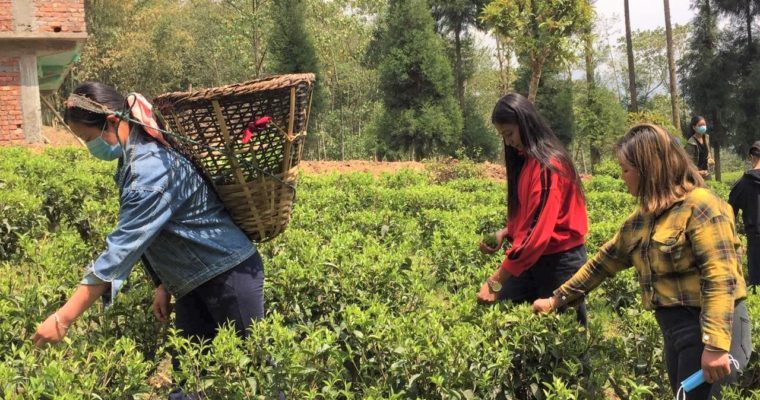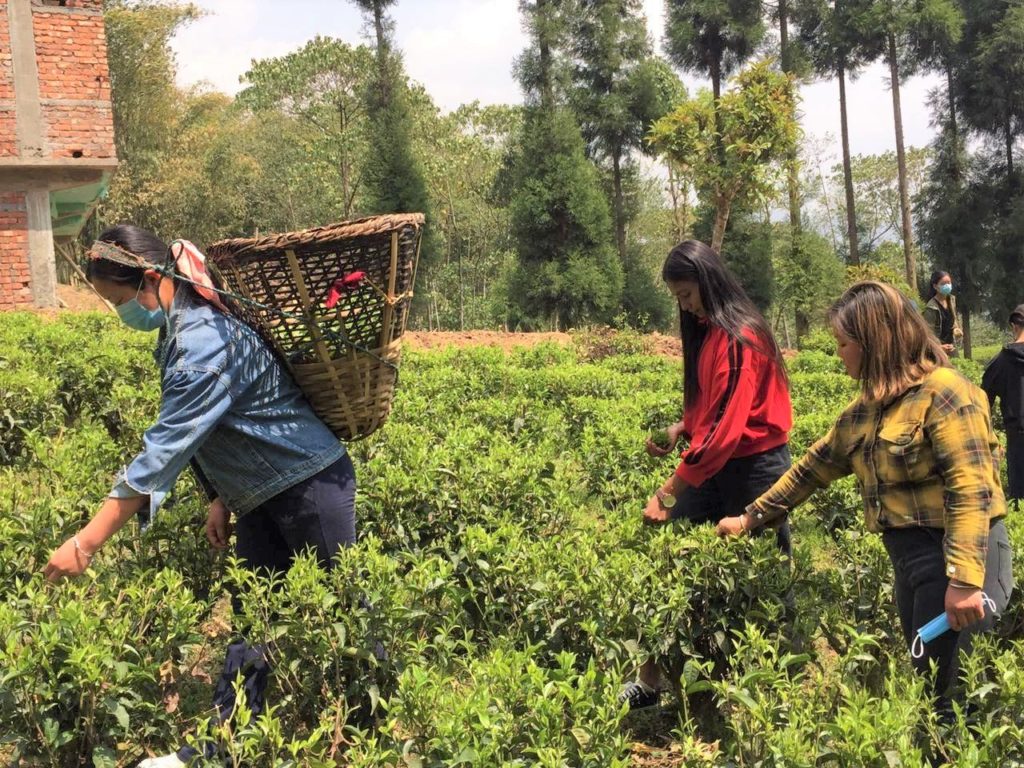In Nepal, agriculture is not the priority sector of the youth farmers. There are many policies and strategies targeted to youth, but the youths are unable to sustain in their business as they lack productive assets, mainly capital assets. The youths are not trusted by the financial institutions and are not involved in policymaking process and their voices always remained disregarded. The productive youths are also given less priority in capacity development trainings and are less exposed to the stakeholders.
Agroforestry system is practiced by most farmers but an in-depth understanding of its scientific application for biodiversity conservation is lacking. Young farmers lack capacity development activities and grants to support their enterprises due to which they are compelled to migrate to gulf countries in search of better employment.
CTCF, Nepal has a youth subcommittee and the youth committee developed three years strategic plan to increase youth involvement in agriculture. CTCF has been conducting different kinds of training i.e capacity development, technical and vocational training.
CTCF, Nepal organized three days virtual training under the project entitled “Improved capacity of the youth committee members on Lobby Advocacy skills, Sustainable Agriculture and Enterprise Development” from 15 to 17th July, 2021 using zoom platform and distributed tea and Kiwi Seedlings, training on lobby and advocacy, lobby to access to finance, access to market, etc. CTCF Nepal is implementing different projects in coordination with national and international organizations like AFA, Agriterra, Dakchyata (British Council), and government organizations.
Altogether, 18 youth farmers and leaders engaging in different cooperatives and private sectors from eight districts participated in the training. The objective of the training was to orient the youth farmers towards Sustainable farming practices and supplement them with the inputs to support their enterprises. The training participants and their families were engaged in agriculture/family farming from the past and present.
This training provided a systematic and scientific roadmap to the farmers to reinforce agroforestry practices and promote sustainable, resilient, and climate-adaptive agriculture practices considering local biodiversity conservation had incorporated agroforestry practices based on their indigenous knowledge and skills. Their involvement in agroforestry practices had conserved local biodiversity and had contributed to the balance of the ecosystem to some extent. The farmers were found engaged in agri-horti-silviculture, horti-silvi- pastoral system which had contributed to reduce soil erosion and regenerate soil health.
The participants also generated viable business ideas and were determined to pursue their dream if productive inputs were provided to them. Youths have unique ideas, skills, and determination, but they lack assets. So, this type of input supplement activity was found more effective to increase youth involvement in agriculture and to engage them in their own business.
After the completion of the training, each YF was provided with 550 tea seedlings (total 9900 seedlings) and 20 kiwi seedlings to 15 YF (total 300 kiwi seedlings) as a part of enterprise support to strengthen their family farming business. The young farmers extended tea and kiwi in three hectares of land by which the agroforestry system was promoted and the income of farmers will certainly rise. Some of the YF have intercropped chilly, cardamom, beans, lentil, etc. which have added some surplus return to their family farming business
Similarly, after the training youth farmers are lobbying and coordinating with local, provincial, and federal governments and national and international supporting organizations for access to finance, access to market, sustainable agriculture (organic farming), access to resources, access to new technology, etc.
The project activities not only provided comprehensive knowledge on Sustainable Agriculture, Lobby-Advocacy skills, and enterprise development, it also targeted youth farmers to promote agroforestry practices in their own farm by providing them with the seedlings of tea and kiwi plant so that the farmers could multiply the productive asset to earn their livelihood by marketing the crop harvested seedlings) and 20 kiwi seedlings to 15 YF (total 300 kiwi seedlings) as a part of enterprise support to strengthen their family farming business. The young farmers extended tea and kiwi in three hectares of land by which agroforestry system was promoted and the income of farmers will certainly rise. Some of the YF have intercropped chilly, cardamom, beans, lentil, etc. which have added some surplus return to their family farming business.
Similarly, after the training youth farmers are lobbying and coordinating with local, provincial, and federal governments and national and international supporting organizations for access to finance, access to market, sustainable agriculture (organic farming), access to resources, access to new technology, etc.





Comments are closed